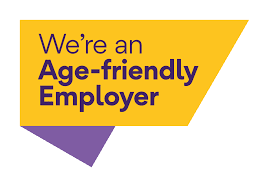AI in Recruitment – Pros, Cons and Future
Pros of Using AI in Recruitment:
- Efficiency and Speed:
- Automated Resume Screening: AI-powered tools can scan thousands of resumes in seconds, quickly identifying candidates that meet specific criteria based on keywords, experience, and qualifications.
- Time Savings: Recruiters spend less time on administrative tasks such as scheduling, follow-ups, and initial screenings, which frees up time to focus on deeper human interactions and strategy.
- For example: Tasks such as reporting, proposal etc. are faster managed. AI has improved my initial research
- Interview Note-taking: Otter.ai, Fireflies.ai and other companies transcribes and summaries of Teams and Zoom meetings.
- Improved Candidate Matching:
- Data-Driven Decisions: AI systems can analyse patterns and past hiring success to predict candidate success, ensuring a better alignment between candidates and the role.
- Reducing Bias: When appropriately designed, AI can help reduce unconscious human bias by focusing on skills and qualifications over factors such as gender, age, or race.
- Enhanced Candidate Experience:
- 24/7 Availability: AI chatbots can engage with candidates around the clock, providing instant responses to FAQs, job application statuses, and next steps.
- Personalized Communications: AI can tailor communication to specific candidates based on their interests and profile, enhancing engagement.
- CRM Systems: Bullhorn offer automated candidates/client engagement tool to improve engagement from two key stakeholders better
- Scalability:
- For large-scale recruitment, AI can handle massive volumes of applications and candidates across multiple locations or departments simultaneously, something human recruiters would struggle to achieve.
- LinkedIn Recruiter has made managing more jobs far simpler. After we have created our initial pipeline. The AI works in the background, sourcing similar profiles meaning. The tool is still in its infancy, so some of the profiles shared are a bit left-field, but it will improve.
- Predictive Analytics:
- AI can assess large sets of historical hiring data to forecast recruitment needs, identify trends, and predict the future performance of hires, assisting in strategic workforce planning.
Cons of Using AI in Recruitment:
- Potential for Bias:
- While AI is designed to eliminate human bias, it can unintentionally learn from biased data if the algorithms are trained on historical hiring data that reflects past discrimination. This can lead to biased outcomes based on gender, ethnicity, or age.
- Lack of Human Touch:
- Recruitment is inherently a human process, and AI lacks the emotional intelligence and empathy that recruiters bring to interactions. This can result in impersonal experiences that may alienate candidates.
- AI may overlook qualities like creativity, culture fit, or emotional intelligence, which are difficult to quantify but crucial for many roles.
- Automated messages on LinkedIn can’t compare to an experienced recruiter at the moment.
- Overreliance on Algorithms:
- There’s a risk that recruiters might become too reliant on AI’s recommendations and ignore their own intuition or the nuances of a candidate’s experience, which AI might not fully capture.
- Algorithms are not always transparent, and recruiters might not fully understand how or why certain candidates are selected or rejected.
- Privacy and Data Security Concerns:
- With AI collecting and processing vast amounts of candidate data, companies must ensure robust data protection policies to avoid breaches and misuse of sensitive information.
- Candidates may have concerns about how their data is used, and ensuring transparency in AI’s decision-making process is crucial for building trust.
- Cost and Complexity:
- Implementing AI solutions can be costly, especially for small and medium-sized enterprises. Additionally, there’s the complexity of integration with existing systems and continuous monitoring to ensure AI tools function as intended.
Future Developments in AI for Recruitment:
- More Sophisticated Candidate Screening:
- AI will likely evolve to analyse a candidate’s social media presence, body language in video interviews, and even voice tone during conversations to provide more comprehensive candidate profiles.
- Advanced natural language processing (NLP) will allow AI to better understand not just what candidates say but how they say it, providing richer insights into personality and fit.
- This technology is already being used EY and other organisation video interviews
- Augmented Decision-Making:
- AI will increasingly act as an assistant to recruiters, offering recommendations on the best candidates based on predictive analytics, but leaving final decisions to human judgment. AI will help recruiters make better-informed decisions faster.
- Real-Time Candidate Engagement:
- AI chatbots and virtual assistants will become even more sophisticated, being able to engage candidates in meaningful, nuanced conversations, answering complex queries, and providing feedback in real-time.
- Automated Interviews:
- The use of AI for video interview assessments, where AI tools assess facial expressions, tone, and language, will likely increase, although it will remain controversial due to potential biases and ethical concerns.
- AI-Powered Onboarding:
- AI can be integrated into the onboarding process, automating paperwork, training schedules, and even personalized learning and development plans based on individual skill sets and job requirements.
- Integration with Workforce Analytics:
- AI will not only focus on recruitment but will also become part of the larger employee lifecycle, helping to predict turnover, guide learning and development, and even assist with performance management, thus creating a more integrated HR ecosystem.
- Ethical AI Governance:
- As AI becomes more ingrained in recruitment, there will likely be more emphasis on ethical AI frameworks, requiring companies to ensure fairness, transparency, and accountability in their AI systems.
Conclusion:
AI in recruitment offers a balance of efficiency and complexity. While it can streamline processes, reduce bias, and improve scalability, there are significant challenges, particularly around bias, lack of human touch, and data security. The future of AI in recruitment will see more sophisticated tools and deeper integrations with the broader HR function, but maintaining ethical standards and human oversight will be key to its successful implementation.

Contact us
Call us on 07930 356305 or email HQ@russam.co.uk








